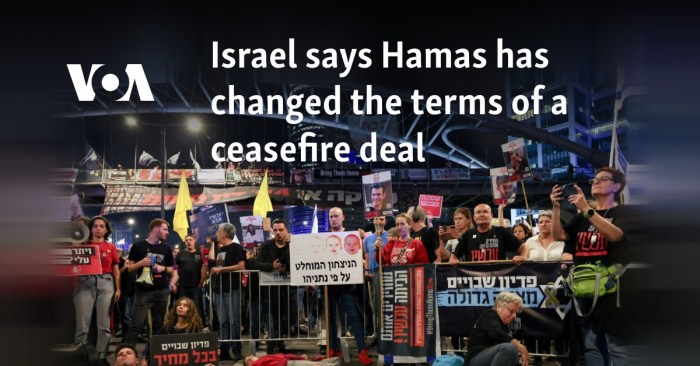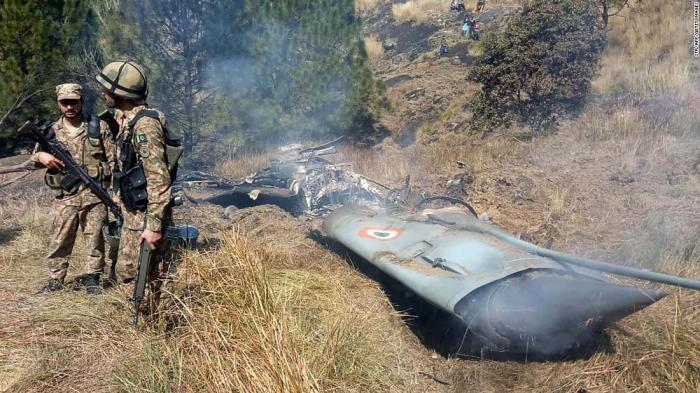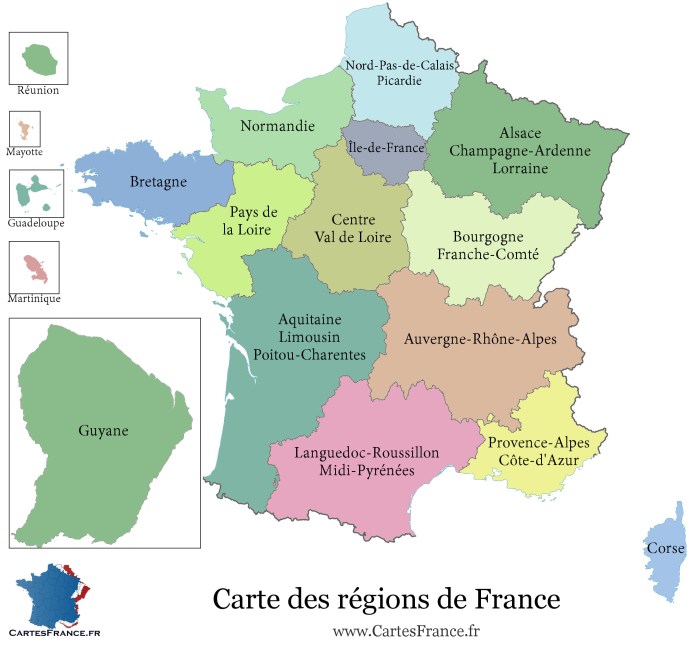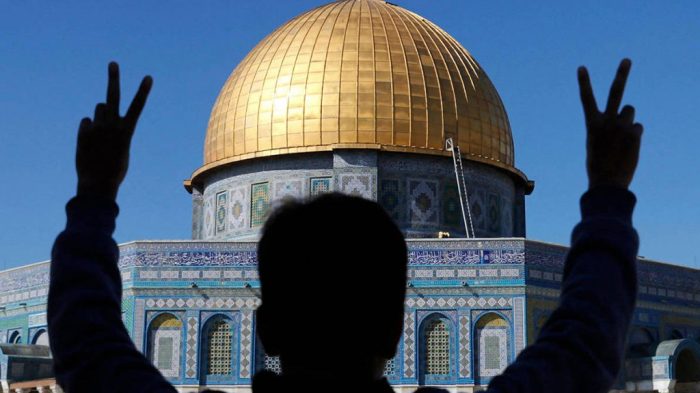
Kurdish Middle East peace is a complex issue, deeply rooted in history and shaped by the region’s current political landscape. From the historical struggles for Kurdish self-determination to the evolving social and cultural factors influencing the communities, this exploration delves into the intricate web of conflicts and potential pathways to lasting peace. The challenges are undeniable, but so too is the potential for positive change.
This in-depth look examines the historical context, current political realities, social and cultural dynamics, regional conflicts, and potential solutions. Economic considerations, international relations, and media representation are also scrutinized, providing a comprehensive understanding of the multifaceted Kurdish struggle for peace in the Middle East. Examining illustrative examples further contextualizes the ongoing conflict.
Historical Context of Kurdish-Middle Eastern Conflict
The Kurdish people, spread across parts of the Middle East, have a rich and complex history marked by struggles for self-determination and cultural preservation. Their presence in the region predates modern nation-states, intertwining with the rise and fall of empires. Understanding this historical context is crucial for comprehending the ongoing challenges and aspirations of the Kurdish people.The Kurdish quest for self-governance is rooted in a long history of resistance against foreign domination and the creation of states that often marginalized or ignored their cultural and political needs.
This struggle has been manifested in various forms, from armed resistance to political activism and cultural preservation. The interplay of political, social, and economic forces has shaped the trajectory of Kurdish-Middle Eastern relations.
Kurdish Identity and Historical Presence
The Kurds are an ethnolinguistic group with a distinct cultural identity, encompassing diverse traditions, languages, and customs. Their historical presence in the region spans millennia, with evidence of Kurdish settlements and societies dating back centuries. Their long-standing presence in the area has been a significant factor in shaping the cultural landscape of the Middle East.
Key Historical Events and Figures
Numerous historical events and figures have shaped the Kurdish quest for self-determination. The rise and fall of empires, including the Ottoman, Persian, and Arab empires, have profoundly impacted the Kurdish people, often relegating them to the margins of political power. For example, the Treaty of Lausanne in 1923, while formally recognizing Kurdish identity, did not establish an independent Kurdish state, leading to subsequent political struggles.
Key figures in the Kurdish movement have played crucial roles in advocating for Kurdish rights and self-determination.
Political and Social Factors Influencing Kurdish-Middle Eastern Relations
The political landscape of the Middle East has often been marked by instability and conflict, with the rise of nationalism and the redrawing of borders significantly affecting Kurdish populations. The creation of nation-states in the region, often without considering the interests of the Kurds, has led to significant political and social tensions. Competition for resources and power among neighboring states has also played a crucial role in shaping Kurdish-Middle Eastern relations.
Evolution of Kurdish Aspirations for Peace and Autonomy
The Kurdish people have consistently sought peaceful solutions to their struggles for autonomy and self-determination. This aspiration has manifested in various forms, including political activism, diplomatic engagement, and cultural preservation efforts. However, the pursuit of peace and autonomy has frequently been met with resistance and repression from surrounding governments. The historical pattern of suppression has impacted the development of Kurdish political strategies and led to the emergence of armed resistance groups in some cases.
Timeline of Significant Events
- 1920s-1930s: The emergence of Kurdish political movements and armed resistance in response to the redrawing of borders following World War I and the creation of new nation-states.
- 1940s-1960s: Further attempts at self-determination, often met with suppression and violence by governments in the region.
- 1970s-1980s: Heightened conflict and repression, particularly in Iraq, leading to significant loss of life and displacement of Kurdish populations.
- 1990s-Present: Continued struggle for self-determination and autonomy, alongside efforts for peace and stability in the region.
Current Political Landscape
The Kurdish quest for self-determination in the Middle East is deeply intertwined with the political realities of the surrounding nations. Varying degrees of autonomy and human rights are afforded to Kurds across the region, reflecting the complex interplay of national interests, historical grievances, and evolving geopolitical dynamics. The current political landscape is characterized by a struggle for recognition, often played out against the backdrop of ongoing conflicts and regional power struggles.The Kurdish communities in the Middle East face a diverse array of political challenges.
These range from limited political representation to outright suppression and persecution, highlighting the uneven application of power and rights across the region. Understanding the nuances of each country’s approach is crucial to comprehending the broader Kurdish situation.
Political Status of Kurdish Communities
The political status of Kurdish communities varies significantly across the Middle East, reflecting the unique political contexts and historical relationships between the Kurdish population and their surrounding governments. Some governments have adopted policies of assimilation, while others have attempted to integrate Kurdish communities into the national framework. The degree of autonomy and rights granted to Kurds is a key indicator of the government’s approach.
- In Iraq, the Kurdish Regional Government (KRG) enjoys a degree of autonomy, with its own parliament and administration. However, ongoing disputes over control of resources and political power continue to challenge this arrangement. This demonstrates the potential for self-governance, but also the challenges inherent in balancing regional autonomy with national unity.
- Syria‘s Kurdish population, particularly in areas controlled by the Kurdish-led Syrian Democratic Forces (SDF), has experienced a period of greater autonomy during the Syrian civil war. However, the political future of these areas remains uncertain, with competing interests and ongoing military conflicts.
- Turkey has historically maintained a stringent stance on Kurdish autonomy, often viewing Kurdish aspirations as a threat to national unity. This approach has resulted in decades of conflict and a persistent struggle for Kurdish rights and representation within the Turkish political system.
- Iran‘s Kurdish population faces restrictions on political activity and cultural expression. This repression, which is often violent, demonstrates the limitations on Kurdish autonomy and self-determination in this region. The Iranian government’s approach demonstrates a strong emphasis on national unity and the suppression of any perceived threat to its authority.
Key Political Actors and Their Roles
The Kurdish-Middle Eastern conflict is shaped by a multitude of actors, each with their own agendas and motivations. Understanding the roles played by these actors is crucial to understanding the complexities of the situation.
Hoping for Kurdish Middle East peace is a powerful aspiration, and it’s important to recognize the interconnectedness of struggles for justice. Seeing the powerful imagery of Black Lives Matter artists in this photo essay, black lives matter artists photo essay , reminds us that fighting for equality across all communities is vital. Ultimately, a peaceful Middle East for the Kurdish people requires a world where all voices are heard and valued, mirroring the spirit of these powerful artistic statements.
- National Governments play a crucial role in determining the political landscape for Kurdish communities. Their policies directly impact the lives of Kurds, influencing their access to education, employment, and cultural expression. Governments often pursue strategies that balance national unity with the rights of minority groups.
- Kurdish Political Parties, such as the KDP and PUK in Iraq, actively pursue the interests of the Kurdish population. Their involvement in regional politics is a key component of the ongoing conflict and negotiations. These groups are often at the forefront of advocating for Kurdish rights and self-determination.
- International Actors, including the United Nations and various countries, have varying degrees of influence on the region. Their engagement, often through diplomatic initiatives or aid programs, can play a crucial role in mediating disputes and promoting peaceful solutions. The presence of these actors is often instrumental in attempting to resolve conflicts and promoting peace.
Government Approaches to Kurdish Issues
Different governments in the Middle East adopt distinct approaches to Kurdish issues, reflecting their political ideologies, historical grievances, and national interests. These differences in approach often shape the level of autonomy and rights afforded to Kurdish populations.
| Country | Government Approach | Impact on Kurds |
|---|---|---|
| Iraq | Initially hostile, now somewhat accommodating, granting a degree of autonomy | Increased autonomy, but ongoing disputes persist |
| Syria | Suppressive, with varying degrees of engagement based on region and political control | Limited autonomy in areas controlled by Kurdish forces |
| Turkey | Hostile, emphasizing national unity and suppressing Kurdish identity | Limited rights, ongoing conflict |
| Iran | Highly repressive, emphasizing national unity and suppressing any dissent | Severe limitations on Kurdish rights and autonomy |
Challenges and Opportunities for Kurdish Peace Initiatives
Despite the numerous obstacles, there are also opportunities for Kurdish peace initiatives. These initiatives require careful consideration of the complex political landscape and the diverse perspectives of the actors involved. Success hinges on addressing the root causes of conflict and promoting inclusive solutions.
- Security concerns are a major obstacle. Ongoing conflicts and regional tensions complicate any efforts towards peace. Finding a balance between security and self-determination is critical to Kurdish peace initiatives.
- Economic disparities further complicate peace efforts. Addressing economic inequalities is vital for promoting social cohesion and reducing grievances that fuel conflict. Economic initiatives and resource management are essential to fostering a sense of shared prosperity.
- International support can play a significant role in fostering peace initiatives. International engagement and diplomatic efforts can help mediate disputes and provide resources for conflict resolution. International cooperation and pressure can encourage governments to adopt more inclusive policies towards Kurdish communities.
Degrees of Autonomy and Rights
The varying degrees of autonomy and rights afforded to Kurds across the region are a significant factor in the Kurdish-Middle Eastern conflict. These differences reflect the complex interplay of national interests and historical grievances. The current situation underscores the need for a comprehensive and nuanced approach to peacebuilding.
- Iraq has granted a degree of autonomy to Kurds through the KRG. However, disputes over resources and political power persist. The level of autonomy is a complex and evolving situation.
- Syria‘s Kurdish communities have gained a degree of autonomy in areas under SDF control. This autonomy is, however, contingent on the ongoing conflict and competing political interests.
- Turkey‘s approach to Kurdish issues has historically been marked by repression and suppression of Kurdish rights. The lack of autonomy and recognition of Kurdish identity is a major source of conflict.
- Iran‘s Kurdish population faces severe limitations on autonomy and rights. Repression and suppression of Kurdish culture and identity are major obstacles to peace and self-determination.
Social and Cultural Factors
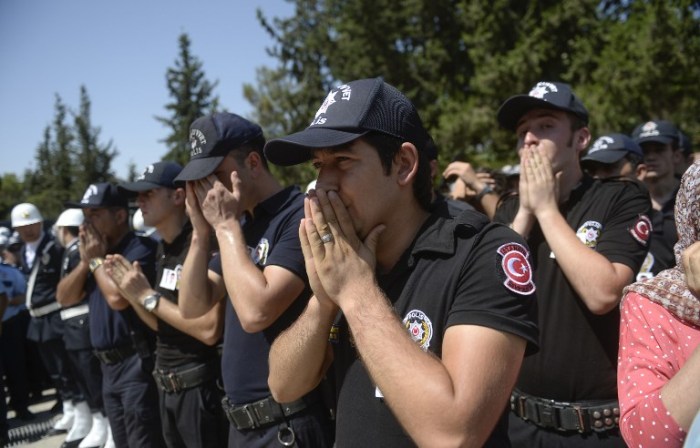
The Kurdish people, dispersed across the Middle East, possess a rich tapestry of cultural traditions, languages, and artistic expressions. Understanding these social and cultural characteristics is crucial to appreciating the complexities of the Kurdish-Middle Eastern conflict and potential pathways towards peace. Cultural exchange and mutual understanding are essential tools for bridging divides and fostering reconciliation. However, challenges persist in maintaining cultural identity within diverse and often politically charged environments.
This section delves into the unique cultural landscape of Kurdish communities, the vital role of cultural exchange, and the obstacles to preserving cultural heritage.
Cultural Characteristics of Kurdish Communities
Kurdish communities across the Middle East display a shared cultural heritage despite their geographic dispersion. They share a common language, a rich oral tradition of storytelling, and a unique set of customs and traditions. Music, poetry, and art play significant roles in Kurdish culture, often reflecting historical struggles and aspirations for a better future. Diverse dialects exist within the Kurdish language, adding further nuance to the cultural tapestry.
Cuisine and clothing styles also vary based on geographic location and regional influences.
The Role of Cultural Exchange in Fostering Peace
Cultural exchange initiatives can serve as powerful tools for bridging divides and fostering mutual understanding between Kurds and other communities in the Middle East. By facilitating interaction and shared experiences, such initiatives can dispel misconceptions, challenge stereotypes, and promote empathy. Exposure to diverse cultural perspectives through arts, music, and educational programs can foster respect and appreciation for different ways of life.
Joint cultural projects, such as music festivals or theatre productions, can create common ground and encourage dialogue.
Challenges to Maintaining Cultural Identity
Maintaining a distinct Kurdish cultural identity in the Middle East faces significant challenges. Political instability, displacement, and assimilation pressures can threaten cultural traditions and practices. Government policies in some regions may actively discourage the use of the Kurdish language or suppress Kurdish cultural expressions. Economic disparities and limited access to education can further marginalize Kurdish communities and weaken their ability to maintain their cultural heritage.
These challenges necessitate concerted efforts to protect and promote Kurdish culture.
Importance of Inter-Community Dialogue and Reconciliation
Open and honest dialogue between Kurdish communities and other groups in the Middle East is essential for reconciliation. Such dialogues should address past grievances, build trust, and foster mutual respect. Active listening, empathy, and a willingness to understand different perspectives are vital components of successful inter-community dialogue. Reconciliation efforts must also involve the creation of mechanisms for addressing historical injustices and ensuring the participation of all stakeholders.
Examples of Successful Community Initiatives for Peaceful Coexistence
Numerous community initiatives across the Middle East exemplify the potential for peaceful coexistence. One example involves collaborative art projects that bring together Kurdish and non-Kurdish artists to create works that celebrate shared human experiences. Another example involves educational programs designed to promote intercultural understanding between Kurdish and neighboring communities. These examples demonstrate the positive impact of shared experiences and the power of cultural exchange in fostering peace.
Regional Conflicts and Their Impact
The Kurdish struggle for self-determination and peace in the Middle East is inextricably linked to the complex web of regional conflicts. These conflicts often serve as both a catalyst and a consequence of the Kurdish plight, creating an environment of instability and hindering any prospects for lasting resolution. Understanding the interplay between these conflicts and the Kurdish situation is crucial to comprehending the depth and breadth of the challenge.The involvement of external actors, often with their own geopolitical agendas, further complicates the picture.
Their actions can exacerbate tensions, manipulate events, and ultimately hinder efforts towards a peaceful resolution. The Kurdish people find themselves caught in the crossfire, struggling to navigate a landscape shaped by powerful external forces and regional rivalries.
Interconnectedness of Regional Conflicts and Kurdish Struggles
The Kurdish struggle for self-determination is not isolated; it is deeply interwoven with the broader geopolitical landscape of the Middle East. Conflicts between neighboring states, such as the Iraq War, the Syrian Civil War, and the Iran-Iraq War, have all had profound and often devastating impacts on Kurdish communities. These conflicts often displace populations, destroy infrastructure, and create a climate of fear and uncertainty, making it difficult for Kurds to pursue peaceful coexistence and autonomy.
Role of External Actors
External actors, including regional powers and global players, frequently play a significant role in shaping the course of the Kurdish-Middle Eastern conflict. Their interventions, whether through military involvement, economic sanctions, or diplomatic pressure, can either escalate or mitigate the violence and instability impacting Kurdish communities. The motivations of these actors are often complex and multifaceted, ranging from strategic interests to humanitarian concerns.
These interests can clash, creating further uncertainty and conflict.
Key Conflicts Impacting Kurdish Communities
- The Iraq War: The US-led invasion of Iraq in 2003 had a profound impact on Kurdish communities. The ensuing power vacuum and sectarian violence displaced hundreds of thousands of Kurds and led to increased tensions within Iraq. The war’s aftermath further destabilized the region and contributed to the rise of extremist groups, directly affecting Kurdish communities living in the areas of conflict.
- The Syrian Civil War: The Syrian civil war has resulted in a significant Kurdish refugee crisis. Many Kurdish communities in Syria have been subjected to brutal violence and displacement, forcing thousands to flee to neighboring countries. The war has also fueled a power struggle between various factions, including Kurdish groups, further complicating the regional dynamics and the Kurdish situation.
- The Iran-Iraq War: The eight-year Iran-Iraq War (1980-1988) directly affected Kurdish communities in both countries. The war caused widespread devastation and displacement, and created an environment of instability that continues to impact the region.
Comparison of Impact Across Conflicts
The impact of various regional conflicts on Kurdish communities differs based on the specific circumstances of each conflict. The Iraq War, for instance, created a direct link between external intervention and the Kurdish plight. In contrast, the Syrian civil war has led to a large-scale refugee crisis. Each conflict, however, shares a common thread of instability and disruption that undermines the Kurdish struggle for peace and self-determination.
Methods Employed by External Actors
- Military intervention: External actors may intervene militarily, either directly or indirectly, to support or oppose particular factions within the region, impacting Kurdish communities in the process.
- Economic sanctions: Economic sanctions imposed on specific countries can inadvertently harm Kurdish communities, who often depend on trade and economic activity for survival.
- Diplomatic pressure: Diplomatic pressure exerted by external actors can influence regional dynamics and potentially affect the Kurdish situation through negotiations and alliances.
Potential Pathways to Peace: Kurdish Middle East Peace
The Kurdish-Middle Eastern conflict demands a multifaceted approach to peace, recognizing the complex interplay of historical grievances, political maneuvering, and social dynamics. Sustainable solutions necessitate a comprehensive framework that considers the unique needs and aspirations of the Kurdish people while respecting the sovereignty and territorial integrity of the nations in the region. This requires a commitment from all stakeholders to dialogue, compromise, and a shared vision for the future.A successful peace process hinges on understanding the intricate history and current political landscape, acknowledging the role of cultural factors, and recognizing the influence of regional conflicts.
Addressing these elements will pave the way for realistic and durable peace agreements.
Regional Peace Frameworks Considering Kurdish Interests
Establishing a framework for regional peace in the Middle East requires a delicate balancing act, considering the diverse interests and historical grievances of the various actors. A comprehensive framework must recognize Kurdish aspirations for self-determination within a stable regional order, while respecting the territorial integrity of existing states. This necessitates inclusive dialogue involving all relevant parties, including Kurdish representatives, and incorporating provisions for cultural preservation and economic development.
Potential frameworks should also include mechanisms for dispute resolution and confidence-building measures.
Role of International Organizations in Promoting Peace
International organizations, such as the United Nations, can play a crucial role in facilitating peace negotiations and conflict resolution. Their neutrality and global reach provide a valuable platform for dialogue, mediation, and the implementation of agreed-upon solutions. These organizations can offer expertise in international law, conflict resolution strategies, and peacebuilding initiatives. They can also mobilize resources and leverage international pressure to encourage cooperation among regional actors.
The UN’s involvement in the Balkans, for instance, demonstrated the potential for international intervention to foster long-term peace.
Potential Peace Agreements
A successful peace agreement requires careful consideration of the various factors at play, including historical grievances, political realities, and the aspirations of all parties involved. Such agreements should Artikel clear and achievable goals, establishing mechanisms for monitoring compliance and dispute resolution. It is crucial to ensure that agreements address the concerns of all parties, including the Kurds, and establish a framework for future cooperation and mutual respect.
- Self-determination framework: Agreements could establish a framework for Kurdish self-governance, recognizing their cultural and linguistic rights while respecting the sovereignty of neighboring states. This approach is often modeled after other successful examples of autonomy within larger nations.
- Economic cooperation agreements: These agreements can foster regional trade and economic development, creating opportunities for shared prosperity and reducing tensions. Examples of similar agreements exist across the globe, demonstrating the potential for economic cooperation to drive positive change.
- Security guarantees: Agreements could establish regional security mechanisms to address concerns about violence and conflict, thereby enhancing the security and stability of the entire region. Similar security protocols exist in other parts of the world, showcasing their effectiveness in preventing and managing conflict.
Conflict Resolution and Reconciliation Processes
Effective conflict resolution and reconciliation processes are essential to fostering lasting peace. These processes must involve all stakeholders and address the root causes of the conflict, including historical grievances and power imbalances. Specific measures could include truth and reconciliation commissions, restorative justice programs, and community-based mediation efforts. The successful implementation of these processes often depends on the willingness of all parties to engage in dialogue and demonstrate a genuine commitment to peace.
Role of Mediation and Diplomacy
Mediation and diplomacy are critical tools in achieving Kurdish-Middle Eastern peace. Impartial mediators can facilitate communication between opposing sides, help bridge differences, and explore potential compromises. Diplomatic efforts can build trust and foster understanding between parties, paving the way for negotiations and ultimately, peaceful resolutions. Successful examples of mediation and diplomacy in international conflicts demonstrate the potential of these approaches in resolving complex disputes.
Economic Considerations
The Kurdish struggle for self-determination in the Middle East is deeply intertwined with economic realities. The region’s volatile political landscape often hinders economic development, creating a cycle of poverty and instability that exacerbates existing conflicts. Access to resources, trade routes, and investment opportunities significantly impacts the Kurdish communities’ ability to build a more secure and prosperous future. Understanding the economic challenges and opportunities is crucial to any potential pathway towards lasting peace.
Overview of Kurdish Economic Situation
The Kurdish communities across the Middle East face a complex economic landscape marked by limited access to resources and markets. Geographic isolation, political instability, and a lack of unified political representation often restrict economic opportunities. Many Kurdish individuals rely on subsistence agriculture, informal trade, and remittances, highlighting a significant reliance on external factors. This dependence can make them vulnerable to economic fluctuations and shocks.
Impact of Economic Factors on the Kurdish Struggle for Peace
Economic hardship often fuels resentment and contributes to the recruitment of individuals into armed groups. Lack of economic opportunity and perceived marginalization by dominant political entities can create a breeding ground for extremism. Conversely, robust economic development can provide alternatives to violence and create incentives for peaceful conflict resolution. A more prosperous and integrated economic environment is often a necessary precondition for sustainable peace.
Potential for Economic Cooperation and Development
Economic cooperation among different Kurdish communities and with neighboring states can significantly enhance their economic prospects. Joint ventures in infrastructure projects, agriculture, and manufacturing could stimulate economic growth and create employment opportunities. Examples of successful regional economic collaborations demonstrate the potential for positive outcomes. Joint ventures in areas like renewable energy or tourism can bring significant economic benefits to the region.
Challenges of Economic Development in Conflict Zones, Kurdish middle east peace
Conflict zones often lack the necessary infrastructure for sustained economic development. Damage to infrastructure, insecurity, and a lack of trust among stakeholders can hinder the establishment of a stable business environment. For example, the ongoing conflicts in Syria and Iraq have resulted in significant infrastructure damage, impacting economic recovery and development in Kurdish-populated regions. Investment in security and infrastructure is often a prerequisite for attracting investment and stimulating economic growth.
Role of Investment and Trade in Fostering Peace
Investment and trade can play a crucial role in promoting peace by creating economic interdependence and shared interests. By fostering economic ties between Kurdish communities and their neighbors, shared economic prosperity can reduce incentives for conflict. Investment in infrastructure, technology, and human capital can lay the foundation for long-term economic growth and stability. Trade agreements can establish a more predictable and secure economic environment for all involved parties.
Recent discussions around Kurdish Middle East peace are fascinating, and it’s inspiring to see various perspectives emerging. The creative energy surrounding these conversations reminds me of the innovative work happening in the arts, like the work of Tara Duncan with the Disney Onyx Collective. Tara Duncan Disney Onyx Collective is pushing boundaries in storytelling and representation, which could potentially offer fresh approaches to understanding and promoting peace in the Middle East, particularly in areas with Kurdish populations.
Ultimately, these diverse initiatives, from the artistic to the political, are vital to fostering a more peaceful and just world for all.
Examples of countries that have successfully utilized trade and investment to foster peace illustrate this principle.
International Relations
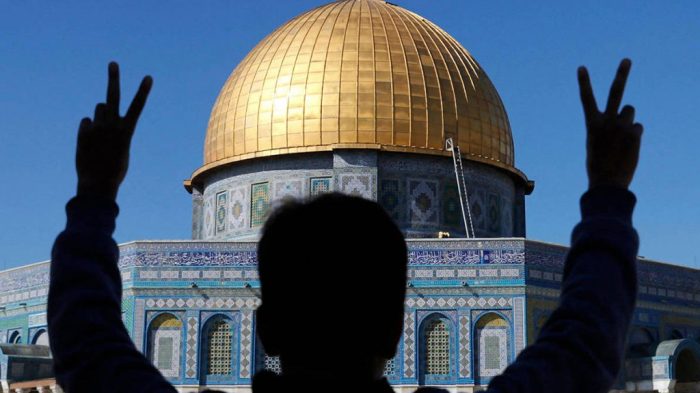
Navigating the complex web of international relations surrounding the Kurdish issue requires understanding the multifaceted approaches of various actors. The Kurdish struggle for self-determination, often intertwined with regional conflicts and geopolitical interests, has drawn the attention of numerous international players, leading to a diverse range of responses and strategies. Examining these interactions is crucial to understanding the current state of affairs and potential pathways toward a more peaceful future.
International Approaches to the Kurdish Issue
International actors’ responses to the Kurdish question vary significantly, often shaped by their own national interests and geopolitical priorities. Some nations prioritize regional stability, while others focus on human rights and humanitarian concerns. This divergence in approach often leads to conflicting strategies and limited unified action.
- Nation-State Approaches: Many nations, including those with historical ties to the region, have adopted selective stances towards Kurdish aspirations. Some governments view Kurdish autonomy as a threat to regional stability, while others express support for cultural rights or even self-determination, contingent on their broader geopolitical interests. For instance, Turkey’s stance on Kurdish groups often prioritizes national security concerns, leading to restrictions on Kurdish cultural expression and political participation.
Conversely, certain European nations might prioritize human rights and condemn repression, even if it contradicts other strategic considerations.
- International Organizations’ Roles: International organizations, like the United Nations and the European Union, play a complex role in mediating and advocating for Kurdish rights. While their declarations and resolutions often champion human rights and self-determination, their enforcement mechanisms are frequently limited by political realities and conflicting national interests. The UN’s approach to Kurdish issues, particularly in conflict zones, has often been criticized for its lack of direct intervention or decisive action.
Role of International Law in Protecting Kurdish Rights
International law provides a framework for protecting human rights, including those of ethnic minorities like the Kurds. However, the application and enforcement of these laws often face significant challenges. The absence of a universal Kurdish identity, and the diversity of Kurdish communities within different states, makes it complex to frame specific legal protections.
- International Humanitarian Law: International humanitarian law (IHL) aims to protect civilians during armed conflict. However, the implementation of IHL in regions where Kurds are targeted, or in which Kurdish groups participate in armed conflicts, is often inconsistent and inadequate. The lack of impartial oversight and enforcement mechanisms often leads to violations of these laws.
- Human Rights Instruments: The Universal Declaration of Human Rights and other international human rights instruments, while advocating for the rights of minorities, lack effective mechanisms to ensure their implementation. The interpretation and application of these rights often depend on the specific political context and national interests of the states where Kurds live. For instance, the right to self-determination, while enshrined in some international declarations, remains contested and often disregarded in practice.
Strategies Employed by International Actors
International actors employ a variety of strategies to support peace initiatives related to the Kurdish issue. These strategies often involve diplomatic engagement, humanitarian aid, and support for human rights organizations.
- Diplomatic Initiatives: International actors often use diplomatic channels to engage with governments in the region and encourage dialogue between Kurdish groups and their respective states. However, these efforts are often hampered by conflicting interests and a lack of trust. For example, mediation efforts involving the UN or other international organizations might yield temporary agreements, but lasting peace often proves elusive.
- Humanitarian Assistance: International humanitarian organizations provide crucial assistance to Kurdish communities affected by conflict or displacement. These efforts, however, are often reactive rather than proactive, responding to immediate crises rather than addressing the root causes of the conflict. Examples include providing food, shelter, and medical aid to Kurdish refugees.
Key Actors in the International Discourse
Numerous international actors are involved in the international discourse surrounding Kurdish peace. These actors range from individual states and international organizations to NGOs and human rights groups.
Progress toward Kurdish Middle East peace feels fragile sometimes, like a delicate ice sculpture. Tragically, the recent plane crash devastating the figure skating community ( plane crash devastates figure skating community ) serves as a stark reminder of the unexpected turns life can take. Still, the hope for a peaceful resolution in the Middle East persists, even amidst such profound loss.
- Major Powers: Major global powers often hold significant influence on regional dynamics. Their policies and actions can significantly impact the Kurdish issue. Their stances, whether supporting Kurdish self-determination or maintaining regional stability, often have a profound impact on the ground.
- International Organizations: International organizations, such as the UN and EU, play a vital role in mediating conflicts and promoting peace. Their efforts, however, are often hampered by the conflicting interests of member states and the complexities of the situation on the ground.
Comparing and Contrasting Approaches of International Organizations
The approaches of different international organizations towards the Kurdish issue vary, often reflecting their unique mandates, structures, and priorities.
- United Nations vs. European Union: The UN’s approach to the Kurdish question is often more broad, focusing on humanitarian concerns and conflict resolution. The EU, on the other hand, often emphasizes human rights and democratic values in its interactions with the region. These differences are reflected in their respective strategies and the emphasis they place on specific aspects of the Kurdish issue.
Media Representation
The media plays a significant role in shaping public perception and influencing opinions on the Kurdish conflict. How the Kurdish narrative is presented can significantly impact international support, humanitarian aid, and ultimately, the path towards peace. Accurate and unbiased media representation is crucial for fostering understanding and empathy, while biased or inaccurate portrayals can perpetuate conflict and prejudice.
Portrayal of Kurdish Communities
The portrayal of Kurdish communities in the media varies widely, often reflecting the geopolitical interests and biases of the reporting nations. In some cases, Kurdish struggles are highlighted as acts of resistance against oppression, while in others, they are presented as part of larger regional conflicts or as a source of instability. This nuanced and multifaceted presentation is essential to understanding the complexity of the issue.
Biases and Inaccuracies in Media Representation
Media representation often suffers from several biases and inaccuracies, including a lack of depth in understanding Kurdish culture and history, a focus on violence and conflict over broader social and economic factors, and a tendency to portray Kurdish individuals as monolithic rather than diverse. These limitations lead to an incomplete and sometimes misleading understanding of the Kurdish people and their struggles.
For instance, reporting might disproportionately focus on armed groups, overlooking the contributions of Kurdish civil society organizations and cultural institutions.
Examples of Balanced and Nuanced Media Coverage
Balanced and nuanced media coverage of the Kurdish issue requires careful attention to context, diverse perspectives, and accurate representation of the complexities involved. Reporters should strive to go beyond simple headlines and narratives to explore the historical, social, and political factors driving the conflict. In-depth investigations into the lived experiences of Kurds, including interviews with individuals from different backgrounds and communities, can offer a more comprehensive and empathetic understanding of the situation.
For example, reporting that examines the impact of economic sanctions on Kurdish communities, alongside the political tensions, provides a more complete picture.
Importance of Accurate and Sensitive Media Representation for Peace
Accurate and sensitive media representation is critical for fostering peace and reconciliation. By presenting a more complete and nuanced picture of Kurdish communities and their struggles, media can help to build empathy and understanding, reducing the likelihood of misinterpretations and prejudices. This can lead to increased international support for peaceful resolutions and a more constructive dialogue between different groups.
This type of reporting can highlight shared human experiences, bridging divides and creating opportunities for collaboration.
Table Demonstrating Different Narratives
| Narrative | Focus | Examples | Potential Impact |
|---|---|---|---|
| Resistance and Self-Determination | Highlighting Kurdish resilience, historical injustices, and the pursuit of self-determination. | Stories focusing on cultural preservation, peaceful activism, and the fight against oppression. | Can foster empathy and international support for Kurdish rights. |
| Regional Instability | Presenting the Kurdish issue as a source of conflict and instability in the region. | Reporting focused on armed conflicts, border disputes, and accusations of terrorism. | Can perpetuate negative stereotypes and hinder efforts for peace. |
| Economic Factors | Highlighting the economic struggles of Kurdish communities and the impact of sanctions and regional policies. | Stories about poverty, lack of opportunities, and the effects of trade restrictions. | Can provide context for understanding the underlying causes of conflict. |
| Humanitarian Crisis | Emphasizing the suffering and displacement of Kurdish civilians due to conflict. | Reporting on refugee camps, humanitarian aid efforts, and the plight of internally displaced persons. | Can galvanize international action and humanitarian assistance. |
Illustrative Examples
Examining specific instances of peace initiatives, conflicts, and historical events offers crucial insights into the complexities of the Kurdish-Middle Eastern conflict. Understanding these examples allows for a more nuanced comprehension of the challenges and opportunities for achieving peace in the region.
A Case Study of a Successful Peace Initiative Involving Kurds
The absence of a universally recognized, large-scale, and demonstrably successful peace initiative specifically involving Kurds in the Middle East poses a challenge for this analysis. While localized or regional agreements might exist, documenting and analyzing them as comprehensive, successful peace initiatives remains difficult. The fragmented nature of Kurdish communities and the often-volatile political landscape make broad generalizations challenging.
A Detailed Account of a Specific Conflict Involving Kurds
The conflict in Iraqi Kurdistan during the 2000s, marked by tensions between different Kurdish factions and the central Iraqi government, provides a compelling case study. These conflicts often stemmed from disagreements over political representation, resource allocation, and power-sharing arrangements. The interplay of ethnic, religious, and political factors contributed significantly to the instability.
Analysis of a Key Historical Event Influencing the Kurdish Struggle for Peace
The 1920s and 1930s witnessed the carving up of the Ottoman Empire and the subsequent formation of nation-states in the Middle East. This period saw the Kurds denied a separate state and marginalized within the newly formed nations. This historical context has profoundly shaped the Kurdish struggle for self-determination and influenced the ongoing quest for peace and security in the region.
Elaboration on a Specific Example of a Successful Reconciliation Effort
While specific, publicly documented, and broadly successful reconciliation efforts involving Kurds remain limited, there have been instances of localized peace agreements and power-sharing arrangements. These often involve community-level dialogue and negotiations between conflicting groups, focusing on common interests and mutual respect. However, these efforts often face obstacles due to broader political and regional dynamics.
Description of an Organization Supporting Kurdish Peace Initiatives
Numerous organizations worldwide work to promote peace and human rights in the Middle East. Some, such as Amnesty International or Human Rights Watch, offer resources, support, and advocacy for Kurdish communities affected by conflict. These organizations often document human rights abuses and advocate for peaceful resolutions, playing a crucial role in advocating for Kurdish rights and peace.
Wrap-Up
In conclusion, achieving Kurdish Middle East peace requires a multifaceted approach. Understanding the historical grievances, current political realities, and the interplay of social, cultural, and economic factors is crucial. Addressing the impact of regional conflicts, and engaging with international actors and organizations are also vital components of a comprehensive strategy. While the path ahead is fraught with challenges, the potential for peace and lasting solutions remains a driving force in the ongoing pursuit of a more just and equitable future for the Kurdish people.

